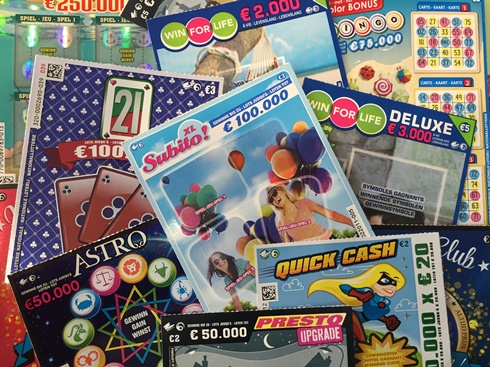Close to the Belgian port of Zeebrugge in West-Flanders, a migrant won €250,000 with a €5 lottery scratchcard, but has not collected the money and now no one can find him.
For €5, the young man bought the winning ticket in the Spar supermarket in Zeebrugge last Wednesday. Not long after, he returned to the store and told the person behind the cash register that he thought he had won €250,000, reports Het Laatste Nieuws.
The shop owner tried to explain to the man that he has to contact the National Lottery to collect his money, and gave him a note with the phone number of the company's offices in Brussels. However, he returned to the store again, this time with a friend and a Visa card, asking if the money could be put on the Visa card immediately.
But stores can only pay out winnings lower than €2,000 in cash, and the owner again explained that the man had to contact the National Lottery. "A winning ticket of €250,000 was indeed registered in that store, but we have not yet had contact with the winner. We do not know who he is," Joke Vermoere, spokesperson for the National Lottery, told VRT.
Related News
- 'Loopholes are being abused': Belgium cracks down on gambling in newspaper shops
- Backdoor to addiction: Concerns raised over bpost's sale of retail stores to gambling company
- Hunt for missing Belgian Lottery millionaire
In any case, the man does not have to worry that, as a migrant without any papers in Belgium, he might not get the money. "Illegal or not, he is entitled to his winnings," she stressed.
The only requirement to get the money is that the person has the winning ticket with them, according to Vermoere. "If he contacts us, we will follow the procedure we follow with all our winners," she said.
Meanwhile, the National Lottery has made sure that the owners of the Spar in Zeebrugge can contact the company directly if the man comes back. "It is exceptional that people who win such amounts do not present themselves immediately."
However, the company recently set up a campaign on social media to find someone who had won €1 million, and did not show up. "In this case, that will probably not be of much help. But we will always do everything we can to find our winners."
In addition to the money, the man would also be given the usual guidance on how to deal with winning such a large sum, added Vermoere. "That is not financial advice, but guidance on a human level. With a few tips, such as not telling people everywhere you go that you won the lottery, for example."

